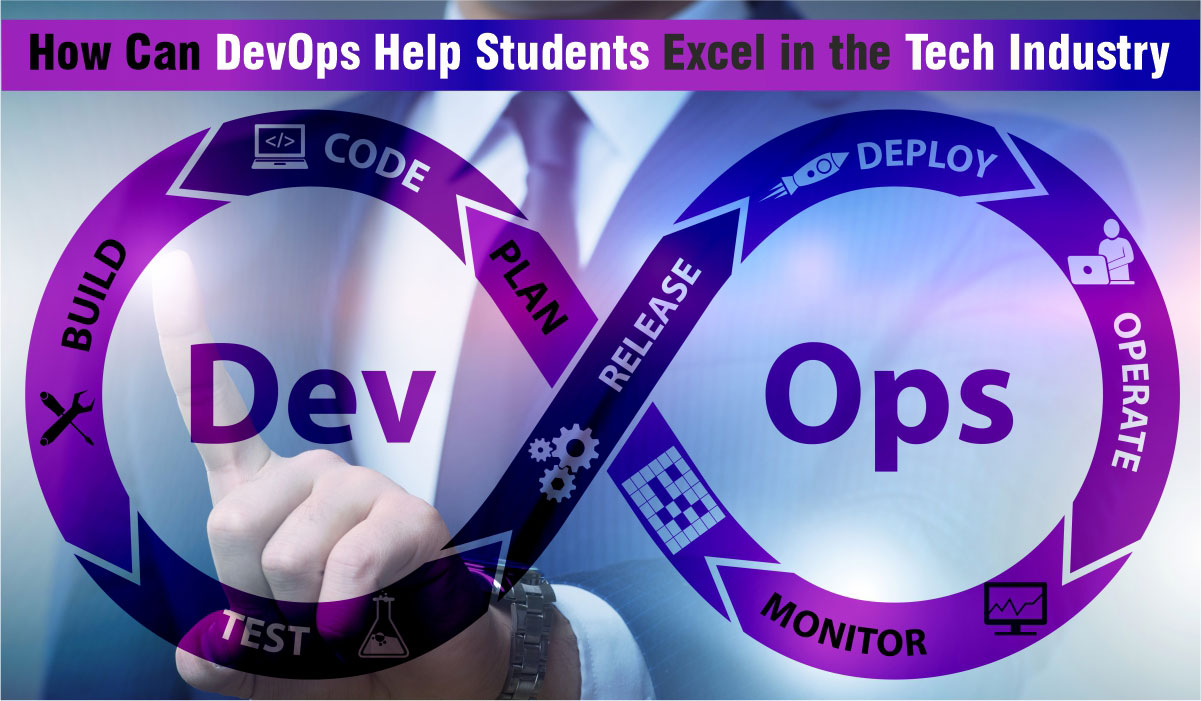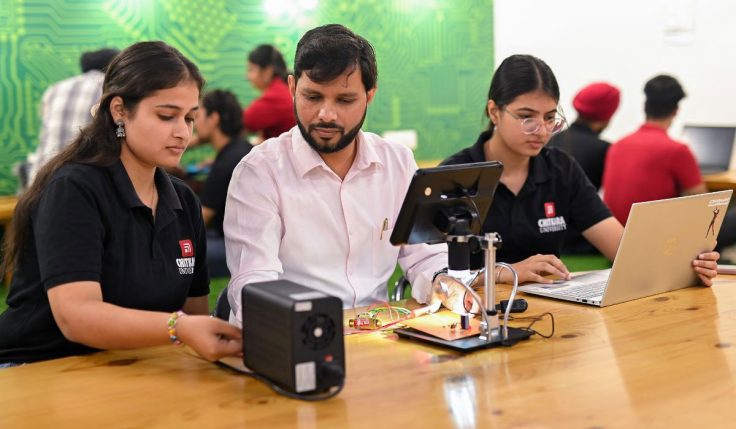The rapidly changing software industry presents many challenges for teaching software engineering concepts and skills. To address these challenges, DevOps is a concept that is relatively based on real-world experiences and helps companies solve significant software challenges.
DevOps is a term that combines development and operations aimed at improving communication between companies for the fundamental purpose of increasing efficiency and productivity. It has gathered a lot of attention, and there is no doubt that DevOps has many benefits for an organisation.
Due to the high demand for DevOps professionals, most companies are willing to pay a lot of money for someone who has the right knowledge and skills. A DevOps has completed the right degree, such as a B.E. in Computer Science Engineering with Specialisation in DevOps from Chitkara, and also the right skills required for being successful at a job.
In this blog, we will see how DevOps can help students excel in the tech industry.
What is a DevOps Engineer?
A DevOps engineer is someone who specialises in the practice of DevOps. It is a practice that is more focused on the integration of development and operations tasks to streamline the software development process while maintaining high-quality standards.
A DevOps engineer gains a deep understanding of both the development and operations processes and is also able to work comfortably in both environments. In addition, the professional is also well-versed in automation tools and practices which can further enhance the software development process.
Why a B.E. in Computer Science Engineering with a DevOps Specialisation?
To become a DevOps engineer, one must pursue a program such as a B.E. in Computer Science Engineering with DevOps Specialisation from an institution such as Chitkara University. The university offers a four-year intensive learning experience with significant theoretical knowledge and practical skill development opportunities.
You can learn the guiding principles of DevOps, including culture, measurement, automation, and sharing, along with the new approach to the traditional application and lifecycle management processes.
Also, read this blog post: How DevOps is Revolutionizing the Banking Industry
Ways In Which DevOps Helps Students Excel in the Tech Industry
The role of a DevOps engineer is to manage an organisation’s application development and delivery processes. He or she is responsible for making sure that software changes can be made in a controlled way. The skills that DevOps students learn to enable them to excel in the tech industry are:
Collaboration Skills: Other than technical skills, a DevOps engineer also needs to have good communication and collaboration skills. All engineers who work across multiple teams must be able to effectively communicate with a wide range of stakeholders.
Becoming a DevOps engineer allows you to build relationships, resolve conflicts, and ensure that everyone is on the same page. You can possess both the soft and hard skills to become a successful DevOps engineer and truly excel in this field.
Proactive Monitoring: Proactive monitoring is mostly about taking the right steps to prevent problems from occurring in the first place. While reactive monitoring only monitors the system for signs of trouble, proactive monitoring also uses predictive analytics to identify potential problems before they happen.
When this is done, proactive monitoring helps avoid outages and disruptions. In addition, it also helps improve the overall quality of service by preventing any problems from happening again.
Configuration Management: As a DevOps Engineer, a key responsibility that you have is to make sure that all code changes are successfully tracked in the problem. Students learn the strong configuration and version management skills required for DevOps engineers.
Configuration management is the process of managing environment variables and configuration files to make sure that all developers are always working with the same set of configurations without any inconsistencies between environments.
On the other hand, with version management, students learn to keep track of different versions of code and configurations. They can quickly identify problematic versions of code so that they can roll back to a previous version.
Customer-focused Skills: DevOps engineers are taught to be focused on customers and their needs. They listen to the customers and understand their needs. This also helps them explain things in a way that the customer can easily understand.
In addition, DevOps engineers also can work well when they are under pressure as they are trained to handle situations. They can think quickly and make decisions that are in the best interest of the customers. This involves building relationships with customers to gain their trust and keep them happy.
Soft Skills: A DevOps student is trained to work on resolving conflicts and building bridges between departments. They can think critically to solve problems efficiently, and as a result, they become an important part of all successful teams.
The soft skills gained by a DevOps engineer help create a positive work environment. When everyone, along with the DevOps engineer, is working together for a common goal, it becomes simple to create unity and boost employee morale. As a result, the contribution increases, and everyone on the team benefits.
Also, read this blog post: Future Scope of Full Stack Developers in India
With more and more businesses becoming agile, there is also a rising demand for DevOps engineers. If you wish to become one, then pursuing a course such as the B.E. Computer Science Engineering from Chitkara University can help you become a competent DevOps engineer and also excel in the tech industry. When you acquire the necessary skills to become a DevOps engineer, you open up numerous opportunities for career advancement. Master the skills of an advanced engineer and grow your career in the dynamic tech industry.






